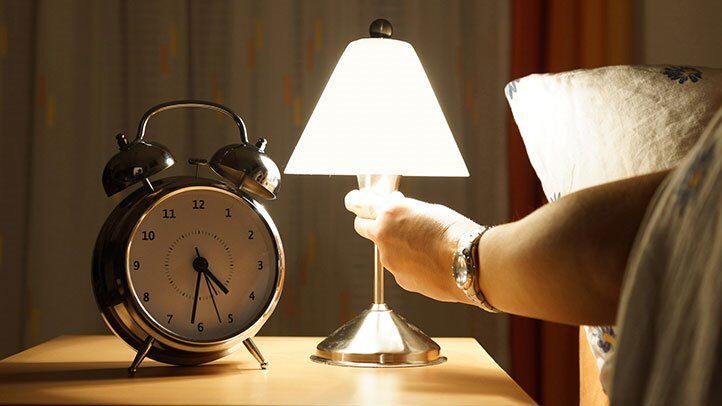How to Cope With Parkinson’s Related Psychosis
Coping with psychosis requires a holistic, multifaceted approach. Your healthcare team will work with you to determine the best course of action depending on your symptoms and needs, but the following are some frequently recommended tips.
1. Address Potential Underlying Causes
As mentioned, underlying medical conditions like an acute infection, nutrient deficiency, or electrolyte imbalance can contribute to delirium and psychosis. A healthcare provider may order tests to see if a health problem could be behind the symptoms, Dr. Saint-Hilaire says. “Sometimes the provider will do urine and blood tests to be sure that hallucinations are not caused by an underlying medical condition like an infection, especially if the onset is rapid,” she says.
Additionally, Etienne says that it’s important to address issues such as cataracts, diabetes, and hearing loss, as the loss of one or more of the five senses can increase your risk of psychosis.
“Appropriate use of hearing aids and having conditions like diabetes mellitus addressed can be helpful, as diabetes can impact sensory function,” he says. “It is important to follow up with your doctor regularly and not automatically blame any new symptoms on Parkinson’s disease. It is quite possible there is another condition occurring that is negatively impacting Parkinson’s disease.”
2. Talk to Your Doctor About Adjusting Your Medication
As mentioned, psychosis is a side effect of some medications used to treat Parkinson’s disease. “People with Parkinson’s disease have a problem with dopamine in the brain. The Parkinson’s medications try to increase dopamine action in the brain,” Etienne says. “That increase in dopamine activity in the brain is precisely one of the mechanisms that contribute to psychosis. This can make for a difficult balancing act.” Medications with anticholinergic effects, including those that treat urinary symptoms of Parkinson’s disease, can also cause psychosis symptoms, Saint-Hilaire says.
Etienne suggests talking to your doctor about changing your medication regimen to minimize side effects. That may entail decreasing your dose, discontinuing a particular drug, or increasing your dose of another Parkinson’s medication, such as cholinesterase inhibitors, which may help alleviate psychosis symptoms.
If that doesn’t work, Bock says that your doctor may advise trying an antipsychotic medication. “Those have more side effects, so you reserve them only for situations in which the hallucinations are truly bothersome and can’t be addressed in other ways,” she says.
3. Establish a Healthy Routine
“A structured daily routine provides a sense of stability and predictability, which can ease the anxiety or disorientation that may accompany psychosis,” says Barbara Sparacino, MD, a physician at The Aging Parent Coach in Miami. “This is particularly important when establishing and maintaining a regular sleep schedule.”
Inadequate sleep, she explains, can worsen psychosis, and sleep disorders are common in Parkinson’s disease.
Exercising, eating nutritious meals, practicing good sleep hygiene, avoiding alcohol and nicotine, spending time in natural light, and engaging in relaxing activities may help you get better shut-eye.
4. Create a Calm, Well-Lit Environment
Sensory overload may be distressing for people with psychosis, so creating a calm, structured environment is recommended, Dr. Sparacino says. “Keep the lighting consistent, minimize loud or abrupt noise, and reduce clutter or visual distractions,” she says. “These changes can help decrease the intensity of hallucinations and other symptoms.”
Regarding lighting, Etienne advises keeping your home well lit, as hallucinations are more likely to occur in dark and shadowy areas. “Keeping the lights on until it is time for sleep can be helpful,” he says.
5. Manage Stress
Bock says that stress — mental or physical — can trigger or intensify symptoms, so finding ways to manage it is crucial.
“Poor sleep, stress, illness, even a common cold or urinary tract infection — any kind of stress on the body or mind can increase your risk of psychosis,” she says.
Other than addressing underlying health problems, Bock says that stress relief looks different for everyone and recommends choosing a method that works for you.
“For some people, exercise can be really stress reducing. I know that’s certainly the case for me. Some people may prefer other strategies, like mindfulness or meditation. Others have individual counselors or therapists who can help them process what they’re going through with a new diagnosis or changes in their new normal,” she says. “Leaning on your family, friends, and social networks — we know that is stress reducing and cognitively beneficial. Many people also find a lot of respite and comfort in spiritual practice. It really just depends on the person.”




